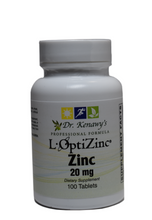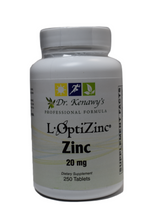

Zinc is a mineral and an essential micronutrient that’s vital to your health. Micronutrients is a term used to describe vitamins and minerals. They’re critical for several important functions in your body and must be consumed from food. Humans must obtain micronutrients from food (ie: an external source) since your body cannot produce vitamins and minerals — for the most part. That’s why they’re also referred to as essential nutrients. Vitamins are organic compounds made by plants and animals which can be broken down by heat, acid or air. On the other hand, minerals are inorganic, exist in soil or water and cannot be broken down. When you eat, you consume the vitamins that plants and animals created or the minerals they absorbed. [3]
Of note, Macronutrients, on the other hand, include proteins, fats and carbohydrates.Your body needs smaller amounts of micronutrients relative to macronutrients. That’s why they’re labeled “micro.” [3]
The micronutrient content of each food is different, so it’s best to eat a variety of foods to get enough vitamins and minerals. An adequate intake of all micronutrients is necessary for optimal health, as each vitamin and mineral has a specific role in your body.
Vitamins and minerals are vital for growth, immune function, brain development and many other important functions. [3]
Zinc is found in cells throughout your body. According to the National Institutes of Health (NIH), zinc is crucial to many aspects of your health. Here are a few examples of what zinc does:
- helps your immune system defend against viruses and bacteria
- supports your body’s protein production
- helps your body make DNA (the genetic material in all cells)
- supports your senses of smell and taste
- helps wounds heal [2]
Zinc is found in (but not limited to):
- Meat
- Shellfish
- Oysters
- crab
- Legumes (eg: chickpeas, lentils and beans)
- seeds (particularly with significant amounts of zinc: hemp, pumpkin, squash and sesame seeds)
- Nuts (eg: pine nuts, peanuts, cashews and almonds)
- Dairy foods (eg: cheese and milk)
- Eggs
- Whole grains (eg: quinoa, oats, wheat, rice)
- Dark chocolate (ie: high calorie & sugar contents, hence not to be a primary source!)
- Most vegetables are poor sources of zinc, but some contain moderate amounts and can contribute to your daily needs, especially if you don't eat meat (eg: kale, green beans as well as potatoes both regular and sweet) [1].
Your body doesn’t store zinc, so you need to eat enough every day to ensure you’re meeting your daily requirements. [1]
Insufficient zinc in your diet can have the following effects:
- slow growth for infants and children
- delayed sexual developments in adolescents
- impotence in men
- hair loss
- diarrhea
- skin and eye sores
- weight loss
- problems with wound healing
- lowered ability to taste and smell food
- decreased alertness levels
Who’s at risk for a zinc deficiency?
Those who are at risk of getting an inadequate amount of zinc include:
- vegetarians
- people with certain diseases, such as chronic renal disease, chronic liver disease, diabetes, or sickle cell disease
- people with certain gastrointestinal diseases, such as Crohn’s disease or ulcerative colitis
- people who misuse alcohol
- pregnant and lactating women
- older infants who are exclusively breastfed
- people who take too much copper (because zinc and copper compete for absorption)
As with all of Dr. Kenawy's professional line products, we use the best manufactures in making our formulas. Dr. Kenawy’s supplement contains L-OptiZinc® - a patented form of zinc which is better absorbed and utilized by the body. †

L-OptiZinc® is zinc mono-L-methionine with superior absorption, retention and antioxidant and cell protectant properties compared to other forms of zinc tested. L-OptiZinc® is 1:1 complex of zinc and methionine, an amino acid that is well-absorbed by the body. L-OptiZinc® offers benefits for dietary supplements and food and beverages.
- Superior absorption and retention
- Superior antioxidant properties
- Superior cellular protection
- Multiple health benefits — from immune function to skin health.†
SUPERIOR PROTECTION FROM A SUPERIOR ZINC

Zinc Methionine is Better Absorbed and Retained Longer in Tissue Then Other Popular Zinc Supplements Tested
L-OptiZinc®'s superior absorption and retention over other forms of zinc may help increase its health-promoting benefits as these benefits are highly dependent on the amount of zinc that actually is absorbed and utilized by the body.
Preclinical research shows that L-OptiZinc® has superior antioxidant properties to several other forms of zinc.

As with all of Dr. Kenawy's professional line products we use the best manufactures in making our formulas. Dr. Kenawy’s L-OptiZinc® (a patented form of zinc). It is 100% natural methionine, the amino acid that is best absorbed by the body and serves as an antioxidant. †
†Features:
- L-OptiZinc® is the only patented form of methionine-bound zinc
-
L-OptiZinc® is the only high-potency zinc supplement FDA-approved safe for human nutrition.
- L-OptiZinc® is the most clinically studied form of zinc available.
-
Studies show that L-OptiZinc® is absorbed better, retained longer and is more effective than ordinary zince supplements tested, and resists binding with dietary fiber and phytate, organic compounds that inhibit zinc absorption.
†Benefits:
- Zinc, an essential trace mineral required for numerous vital cell functions, including growth and development, healthy skin and nails, reproduction, as well as supporting healthy vision and immune function.
- L-OptiZinc® is the only zinc compound shown in studies not to deplete the important trace mineral copper, which supports the cardiovascular, skeletal and nervous system.†
- L-OptiZinc® is a patented form of the essential trace mineral required for proper growth and function of many types of immune cells. It is also critical to the health of the thymus gland; location where immune cells known as T-cells are made.†
†These statements have not been evaluated by The Food and Drug Administration. This product is not intended to diagnose, treat, cure or prevent any disease. Information and statements made are for education purposes and are not intended to replace the advice of your General Practitioner. If you have a severe medical condition or health concern, see your physician.
References:
[1] The 10 Best Foods That Are High in Zinc. (2018, April 19). HEALTHLINE MEDIA INC. https://www.healthline.com/nutrition/best-foods-high-in-zinc
[2] What Is Chelated Zinc and What Does It Do? (2019, December 3). HEALTHLINE MEDIA INC. https://www.healthline.com/health/chelated-zinc
[3] Micronutrients: Types, Functions, Benefits and More. (2018, September 27). HEALTHLINE MEDIA INC. https://www.healthline.com/nutrition/micronutrients







